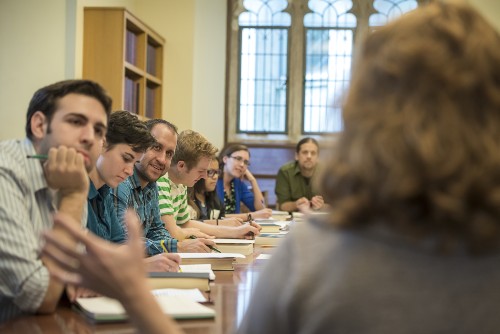By: Samir Haddad
Reading Group Participant
Associate Professor, Philosophy

One of the lessons we’re already drawing from the COVID-19 crisis, is that as an institution and a society we need to be better prepared for the future. The rapid and positive response of students, faculty, staff, and administrators to completely change the way that Fordham operates has been truly impressive, but we’ve also learned that we were woefully unprepared for this event. We’re now all under pressure to plan and be ready for what lies ahead us, even as so much of the future remains so uncertain.
I believe that this planning and preparation is absolutely essential, but I worry about the effects it may have on all of us engaged in the mission of education. We are understandably afraid of what the future of the pandemic holds, and we need to do our best to make sure that the worst possibilities in that future are held at bay. We need to change our policies and actions so that we are protected against the damage that the pandemic can do – damage to our bodies, to Fordham, to our community, to the economy, to our democracy, to the very fabric of our society. But I worry that this fear of the future of the pandemic becomes a fear of the future as such. I worry that in our fear we will become focused on being in total control of everything in the future, on trying to anticipate every possible event and every eventuality.
I worry about this because fear of the future is fundamentally an anti-educational attitude. Everyone involved in education – students, teachers, staff, and administrators – must love the future and welcome it with open arms. And central to this love is a willingness to be surprised. The best educational experiences occur when something happens in the classroom that we had no idea was coming, when someone says something completely unpredictable, so that everyone in the room, the teacher included, learns something new. Education is all about preparing students for the future, but without all of the protections, so that they will chase it and embrace it. An education that does not love the future and is afraid to be surprised by it, is hard to imagine as an education at all.
So as we continue to reimagine higher education – something the crisis is forcing us all to do – I hope that we can balance the fear in our minds with an equal measure of love.
